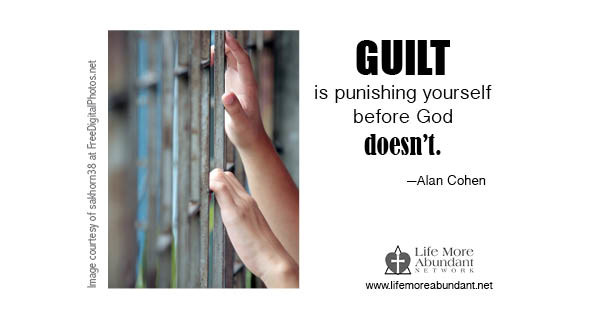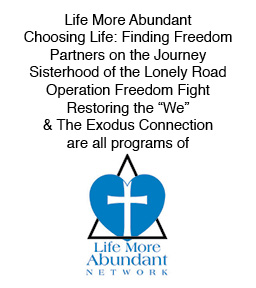We’ve probably all seen those adventure movies where the guy unknowingly stumbles into a pit of quicksand. The more he struggles to get free, the more hopelessly trapped he becomes. Shame is, quite literally, the quicksand of the emotional world.
To fully understand its dangers, we first have to understand what it is . . . and what it isn’t. Although shame, guilt and feeling ashamed are all related, they are actually very different.
WHAT IS SHAME?
Shame is the painful emotion we feel whenever we believe we have fallen short of either societal standards or our personal beliefs of who we should be and how we should act. Depending on its source and accuracy, it can either paralyze us or it can be a positive catalyst for change and growth.
HOW IS THAT DIFFERENT THAN GUILT?
If we believe our actions have injured someone, we may feel a remorse or a guilt. It doesn’t matter if our offense is actually real or just imagined.
If we have truly hurt someone, feeling ashamed is an appropriate response. It’s a healthy reaction that can help us acknowledge our mistakes and make the changes and amends necessary to restore the relationship and guard from repeating the same behavior again.
If our guilt is based on incorrect assumptions, however, or if we aren’t able to move beyond constantly reflecting on our wrongdoing even after we have taken steps to “made it right,” it can lead to feelings of resentment, depression and toxic shame.
WHAT EXACTLY IS TOXIC SHAME?
Toxic shame is rooted in the belief that we are somehow unacceptable. It is fed by an unhealthy comparison of ourselves with the unrealistic perception of the perfection or standards of others. It tells us that we didn’t just do something bad; we are bad.
It can lead to:
- Hopelessness –
The constant guilt that comes from acting out and not being able to stop encourages toxic shame. After repeated failures, part of us whispers “what’s the use of trying, I’m just going to fail again.” We stop believing that we will ever be able to change. We become even more convinced that there is something significantly wrong with us. We see no way out. - Isolation –
We certainly don’t want others to know just how flawed we believe we are. We fear their judgment. Instead of being able to confess our sins and find freedom from our guilt, as God planned, these intensely negative feelings about ourselves convince us that we must hide from others. This self-imposed exile keeps us from receiving the support, encouragement and truth we desperately need to move forward. - Repetition –
Left unresolved, these feelings only intensify. They keep sending us back to wallow in the mountain of shame we have accumulated. We become so disgusted and critical of ourselves that the least little slip or negative encounter plunges us even deeper into this cycle of helplessness.
Just like the man in the quicksand, we get more and more entrapped. Like Job, we may say “If I am guilty—woe to me! Even if I am innocent, I cannot lift my head, for I am full of shame and drowned in my affliction.” — Job 10:15
But this does not need to be the end of the story. Join us next week as we explore practical ways of reducing, and even eliminating, toxic shame, so we, too, can experience a clean heart and renewed hope.
“Let us draw near to God with a sincere heart and with the full assurance that faith brings, having our hearts sprinkled to cleanse us from a guilty conscience and having our bodies washed with pure water. Let us hold unswervingly to the hope we profess, for he who promised is faithful — Psalm 10:22-23
TODAY’S CHAT: Do you have a testimony of being released from toxic shame? If so, please share what God has done in your life to free you from those destructive feelings in the response box below.



Leave A Response